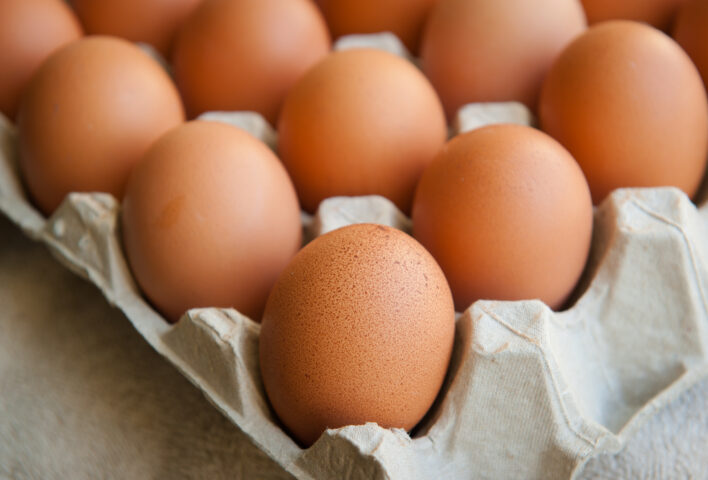Free-range eggs consultation

If you have five minutes to spare, we’re looking for member and supporter views about free-range eggs and the increasing incidences of avian flu.
A government consultation is seeking views on whether the label ‘free-range’ can still be used even when birds are confined indoors for extended periods during avian flu outbreaks. But will this damage consumer confidence in the free-range label and maybe have knock on effects on other environmental and ethical labelling?
Let us know your views by completing our survey. We’ll build member and supporter feedback into our consultation response.
Some background on avian flu
Globally, avian flu outbreaks are becoming increasingly common and there is increasing concern over the impacts to the economy and environment. It is widely recognised that while domestic birds (raised for meat or eggs) contract avian flu from wild birds, housing large numbers of domestic birds in crowded conditions can help the avian flu virus mutate and become more virulent. In the UK, large numbers of domestic birds have been culled and significant numbers of wild bird deaths have also been recorded. While widespread preventative use of vaccines to protect domestic birds continues to be explored, other control measures are more commonly deployed. One of the key measures is to house domestic birds indoors and prevent access to outdoor space (which limits the potential for spread to flocks from wild bird populations).
What does this mean for free range hens and their eggs?
Free range laying hens currently supply 64% of all egg production in the UK. However, in areas subject to avian flu, they are required to be kept indoors. Current legislation in the UK allows eggs from free-range hens to continue to be labelled as free-range, even if they are currently kept indoors due to avian flu – as long as the period of confinement is not longer than 16 weeks. If the birds are confined for longer than 16 weeks then the eggs cannot be labelled ‘free-range’ and producers must change the description on their packaging. The government is consulting on whether to remove this 16 week timescale and effectively allow eggs from free-range hens to still be labelled free-range where they are confined for longer periods – with no upper time limit.
Current egg supply
The European Union, already has no upper time limit governing when a free-range label can no longer be used. Hence eggs bought in the UK but imported from the EU may already be labelled free-range, even when hens have been confined for extended periods. Also, post-Brexit, Northern Ireland (NI) follows EU legislation and currently supplies 10% of all eggs bought in England, Scotland and Wales. Hence eggs from the EU or NI labelled ‘free-range’ may already come from hens confined for long periods beyond 16 weeks.
Issues for producers
Of course, having to change their packaging once birds have been confined for more than 16 weeks, imposes costs on the laying hen sector, which is particularly difficult when costs of feed and fuel remain high. Removing the need to change their packaging will remove an additional cost burden and bring the UK into line with EU and NI legislation.
Issues for consumers
The free-range label is arguably one of the most successful animal welfare food labels. Of course, in commercial egg laying operations, it doesn’t quite equate to the farmyard picture some shoppers may have in mind. But it remains a standard many shoppers look for (surveys suggest up to 80% of shoppers look for the label when buying eggs). With avian flu outbreaks increasing, it is likely that more domestic laying hens will be increasingly confined and potentially for longer periods. As more people become aware that increasingly ‘free-range’ may not actually mean ‘free-range’, it could damage hard-won consumer confidence in the label and potentially impact further on their confidence in other animal welfare labels.
Unintended consequences
With increasing outbreaks of avian flu and no mass vaccination programme for farmed chickens currently available, there is a clear risk that laying hens will be increasingly housed indoors for extended periods in avian flu affected areas. If eggs from affected areas continue to be labelled as free-range, when they aren’t, there is potential for customer confusion about the label. If free-range may not actually mean free-range, might shoppers increasingly ignore the free-range label and default to lower welfare standard eggs – as they are likely to be cheaper. If this happens might the industry respond to consumer purchasing habits and begin increasingly housing domestic laying hens indoors, with no access to outdoor space?
